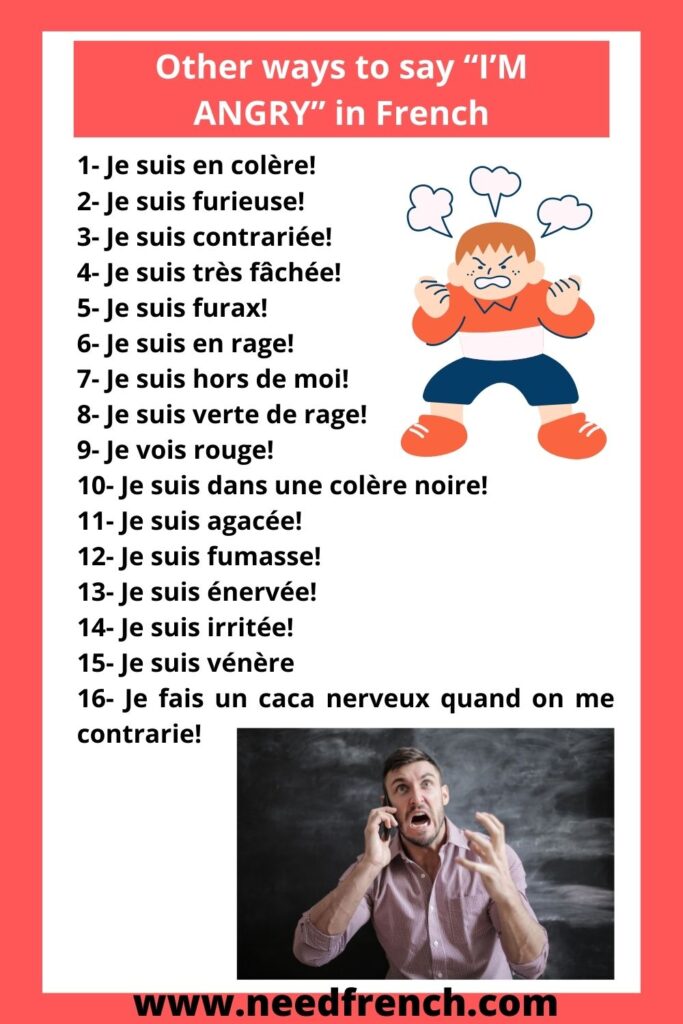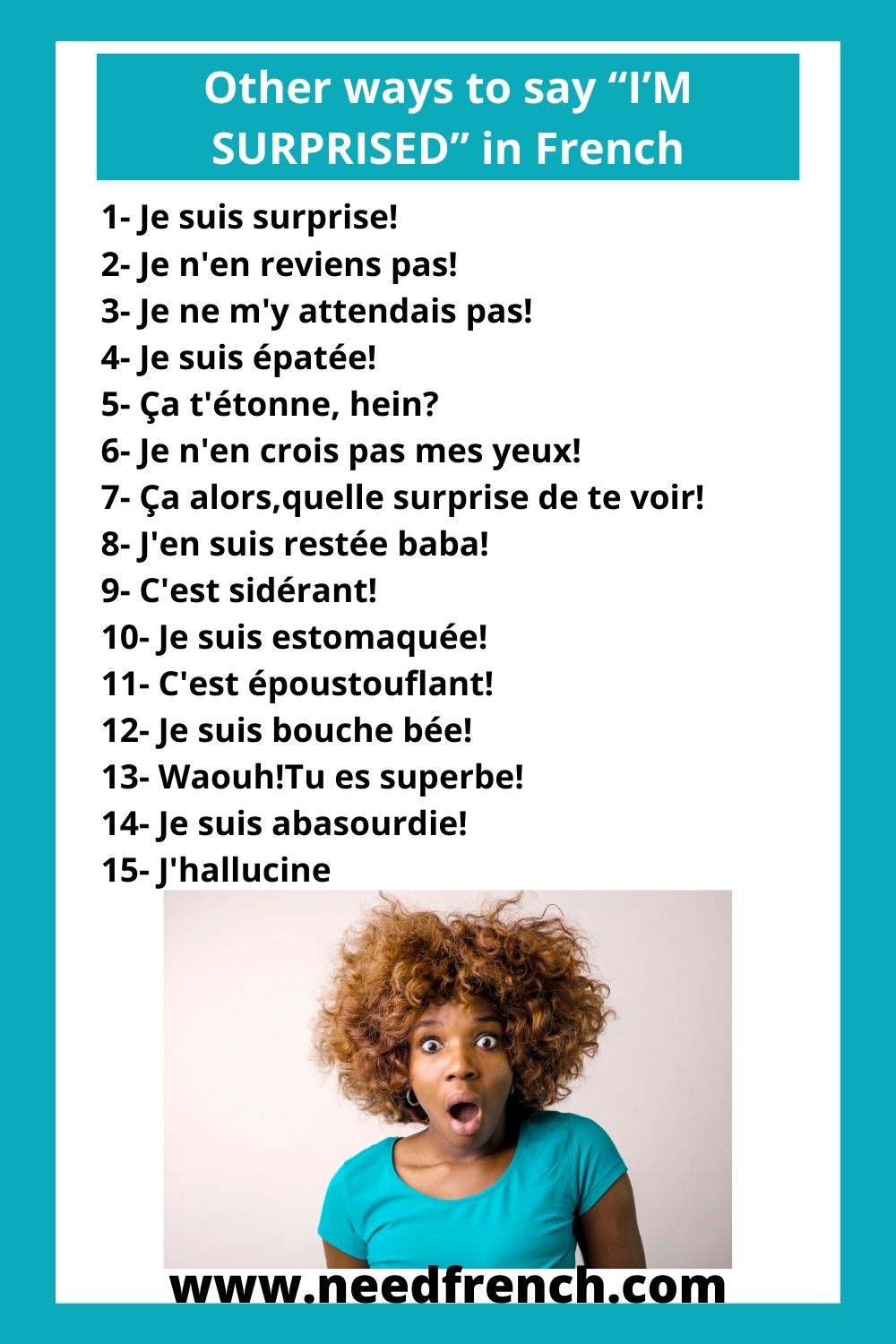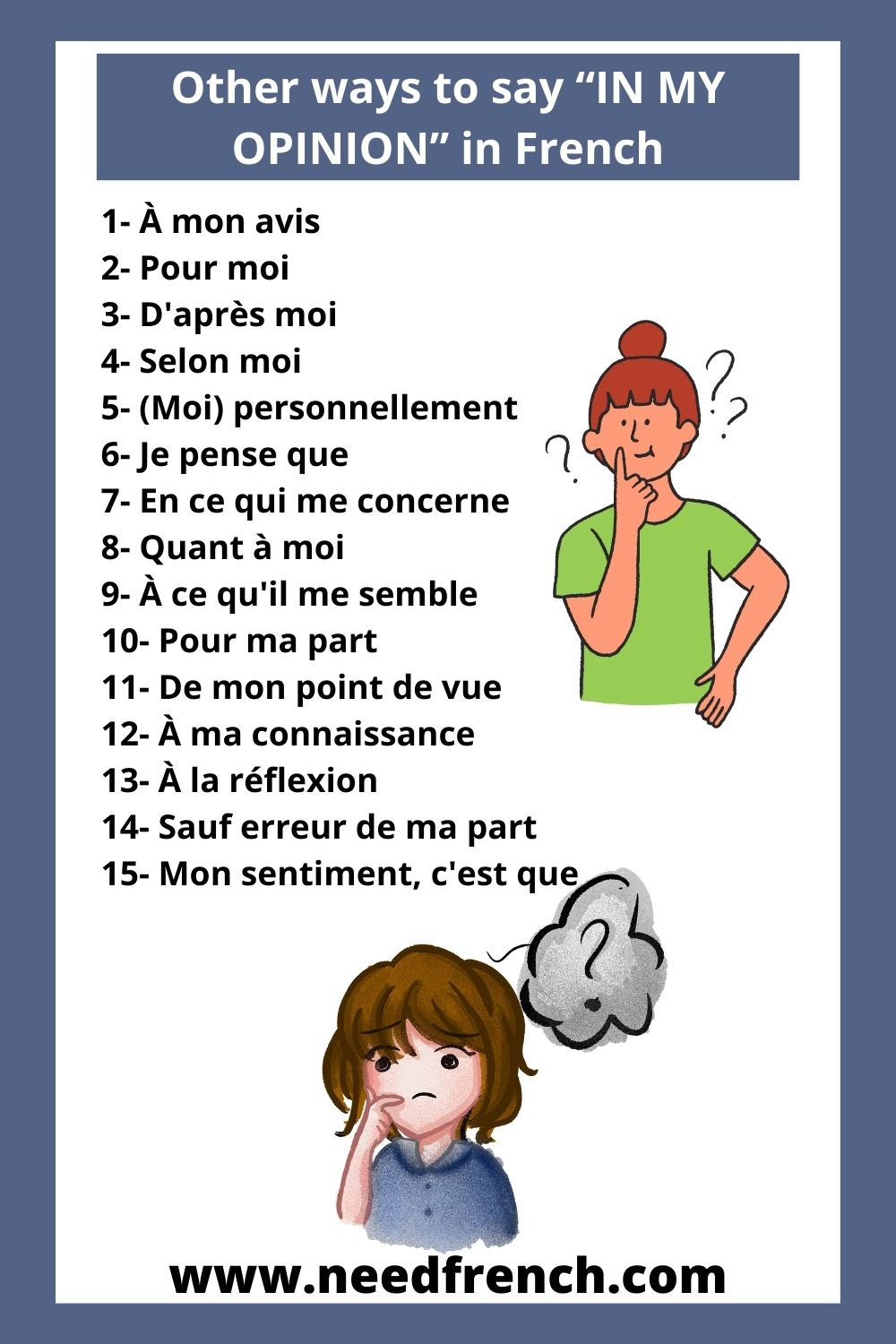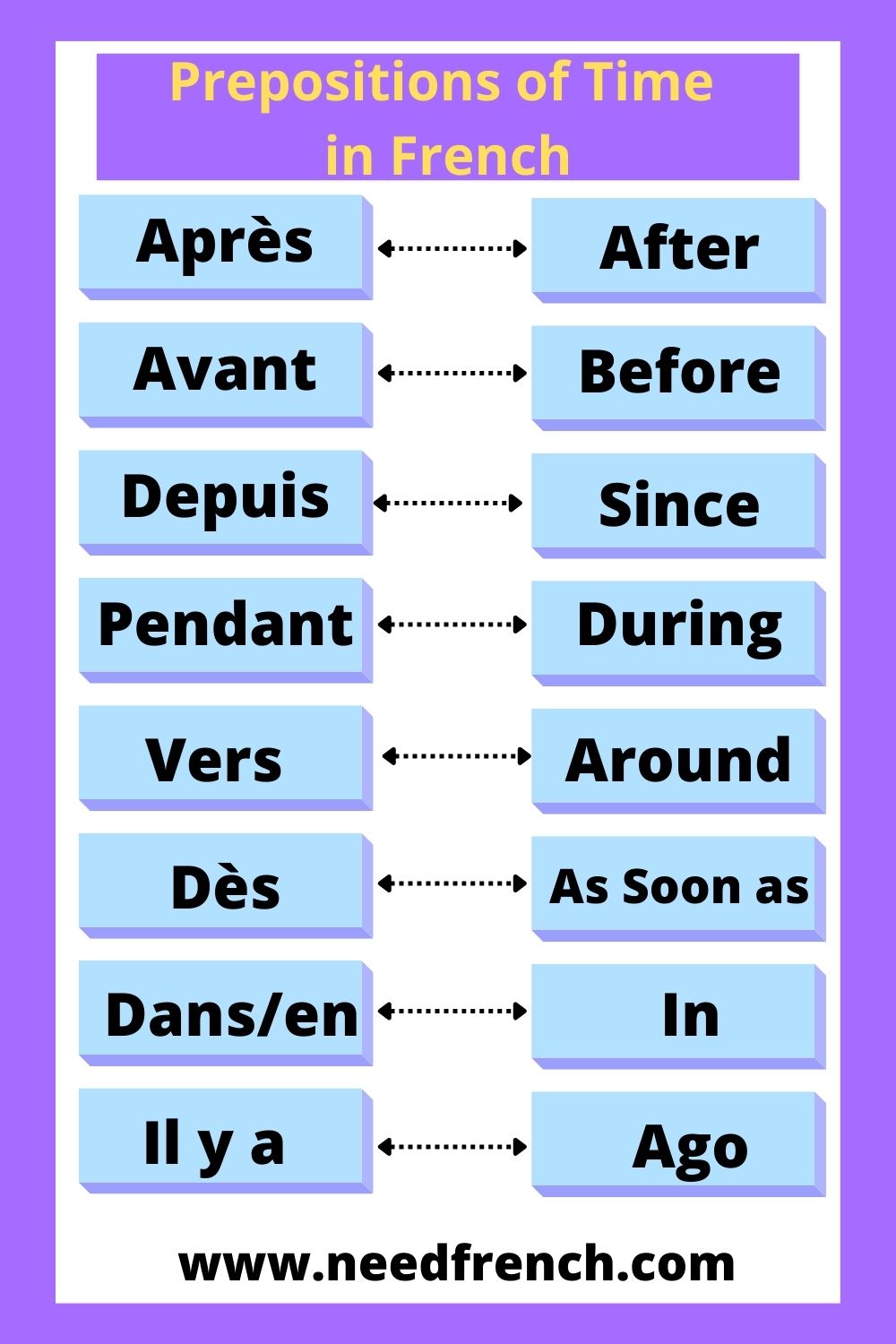Are you learning French and feeling a bit hot under the collar? Whether you’re expressing frustration to French friends or trying to understand heated conversations, knowing different ways to say “I’m angry” can make your French more expressive and authentic. In this guide, we’ll explore 16 powerful phrases to express anger in French, perfect for beginners!
Table of Contents
ToggleWhy Learn Different Ways to Express Anger in French?
Learning varied expressions not only enriches your French vocabulary but also helps you understand and express emotions more accurately. Plus, it allows you to navigate different levels of intensity when expressing frustration or anger.

16 Expressive Ways to Say “I’m Angry” in French
Let’s dive into these passionate phrases:
- Je suis en colère – The standard way to say “I’m angry”
- Pronunciation: zhuh swee on ko-lair
- This is the most neutral and widely used expression
- Je suis furieux/furieuse – When you’re furious
- Pronunciation: zhuh swee foo-ryuh/foo-ryuhz
- Use furieux for masculine, furieuse for feminine
- Je suis contrarié(e) – When you’re annoyed or upset
- Pronunciation: zhuh swee kon-tra-ryay
- A milder form of anger, closer to “I’m upset”
- Je suis très fâché(e) – When you’re very angry
- Pronunciation: zhuh swee tray fa-shay
- A stronger expression than simply being angry
- Je suis furax – A colloquial way to express intense anger
- Pronunciation: zhuh swee foo-raks
- This is informal and quite strong
- Je suis en rage – When you’re enraged
- Pronunciation: zhuh swee on razh
- Expresses a very intense, almost uncontrollable anger
- Je suis hors de moi – When you’re beside yourself with anger
- Pronunciation: zhuh swee or duh mwa
- Literally means “I’m outside of myself”
- Je suis vert(e) de rage – A colorful expression for intense anger
- Pronunciation: zhuh swee vair duh razh
- Literally means “I’m green with rage”
- Je vois rouge – When anger is clouding your judgment
- Pronunciation: zhuh vwa roozh
- Means “I’m seeing red,” similar to the English expression
- Je suis dans une colère noire – Expressing extreme anger
- Pronunciation: zhuh swee don oon ko-lair nwar
- Literally means “I’m in a black anger”
- Je suis agacé(e) – When you’re irritated
- Pronunciation: zhuh swee a-ga-say
- A milder form of anger, closer to annoyance
- Je suis fumasse – A very colloquial way to express anger
- Pronunciation: zhuh swee foo-mass
- Informal and quite strong, similar to “I’m fuming”
- Je suis énervé(e) – When you’re worked up or agitated
- Pronunciation: zhuh swee ay-ner-vay
- Can range from mild irritation to stronger anger
- Je suis irrité(e) – When you’re irritated
- Pronunciation: zhuh swee ee-ree-tay
- Similar to “agacé(e)” but can be slightly stronger
- Je suis vénère – A very informal way to express anger
- Pronunciation: zhuh swee vay-nair
- This is verlan (French slang) for “énervé”
- Je fais un caca nerveux – A humorous way to express frustration
- Pronunciation: zhuh fay un ka-ka ner-vuh
- Literally means “I’m having a nervous poop”
- This is very informal and often used jokingly
Tips for Using These Expressions
- Consider the formality of the situation when choosing an expression.
- Pay attention to gender agreement for adjectives (e.g., furieux/furieuse).
- Be cautious with very informal expressions in professional settings.
- Remember that expressing anger directly can be seen as impolite in some contexts.
Practice Makes Perfect!
Try incorporating these phrases into your French conversations when appropriate. Remember, the key to sounding natural is practice and understanding the context.
Your Turn to Vent in French!
Do you know any other ways to express anger in French? Share your favorite expressions in the comments below. Let’s learn from each other and expand our French emotional vocabulary together!
Learning these expressions will not only help you express your feelings more accurately in French but also give you insight into the rich and expressive nature of the language. Bonne chance (Good luck) with your French learning journey, and remember to keep your cool!













